 Every year, PGI participates in a number of international events and conferences as a way of disseminating its work and key findings. President Jocelyne Bourgon delivers each year a limited number of keynote addresses at the request of interested organizations. The following provides an illustration of recent keynote addresses at international events, and other similar international activities:
Every year, PGI participates in a number of international events and conferences as a way of disseminating its work and key findings. President Jocelyne Bourgon delivers each year a limited number of keynote addresses at the request of interested organizations. The following provides an illustration of recent keynote addresses at international events, and other similar international activities:
French Embassy in Ottawa
Program Review discussion, 2023
30 years ago, Canada invented an approach to achieve a balanced budget that still inspires other countries. In September 2023, the French Embassy in Ottawa invited the Honourable Jocelyne Bourgon to discuss Program Review and how the Canadian deficit was eliminated in the mid 1990s. This French-language video, also featuring the Right Honourable Jean Chrétien and Parliamentary Budget Officer Yves Giroux on the subject, may be a helpful reminder of lessons learned as Canada once more refocuses on its own fiscal situation.
The video below was made by the French Embassy in Ottawa for their Ministry of Finance. The commentary throughout by host Morgan Larhant reflects their analysis and conclusions.
For more on Program Review from Mme. Bourgon’s perspective, see her 2009 report for CIGI and IFG.
Denmark

Leadership Summit 2022, Central Denmark Region
 PGI President Jocelyne Bourgon was in Aarhus (Denmark) in May 2022, where she was the keynote speaker at a conference that brought together some 350 leaders of the Aarhus regional hospital system. The region is undertaking a major transformation process to move from sick care to health care at a time of labor shortage. Over two days, she also participated in round table conversations with smaller groups of health care leaders and facilitated feedback sessions from several working groups.
PGI President Jocelyne Bourgon was in Aarhus (Denmark) in May 2022, where she was the keynote speaker at a conference that brought together some 350 leaders of the Aarhus regional hospital system. The region is undertaking a major transformation process to move from sick care to health care at a time of labor shortage. Over two days, she also participated in round table conversations with smaller groups of health care leaders and facilitated feedback sessions from several working groups.
New York City

The New Synthesis Initiative: Serving in the 21st Century – Study Group in New York City
PGI President Jocelyne Bourgon was in New York City in earlier May 2022, where she led a full day workshop on the New Synthesis for a group of senior municipal leaders from Denmark. This session was part of the Danish Public Education Program sponsored by University College Copenhagen.
Finland
Podcast on Systems Thinking and Anticipatory Governance in Finland
PGI’s President discusses the importance of systems thinking in government with Sirpa Kekkonen, a senior policy advisor at the Prime Minister’s Office Finland. The full podcast can be found here. The discussion took place after Finland released a report entitled “Government steering beyond 2020: From Regulatory and Resource Management to Systems Navigation” on March 2021.
Norway

Governance Conference 2021: Are we mastering complexity?
 Complex societal problems challenge traditional structures and management responsibilities, thus requiring new ways of working and thinking. The 2021 Norwegian management conference featured the participation of national and international experts who discussed new governance and public innovation opportunities.
Complex societal problems challenge traditional structures and management responsibilities, thus requiring new ways of working and thinking. The 2021 Norwegian management conference featured the participation of national and international experts who discussed new governance and public innovation opportunities.
PGI’s President, Jocelyne Bourgon, participated as a keynote speaker. She also participated in a panel discussion with Kristian Dahl, researcher and founder of the Danish consulting company LEAD, about the experience of Denmark with the New Synthesis.
Following the conference, Hilde Singsaas, Director of Administration and Financial Management, summarized the learning as follows :
“Bourgon draws elements from different management theories and combines new and old values and mindsets. Well-functioning institutions and compliance with laws and regulations are at the bottom. We find it easy to take this for granted in Norway, but unfortunately we see that basic management values are under pressure in many countries.
Streamlining and results orientation is another pillar of Bourgon’s framework, in line with the main principles of goal and result management as we know it from our own management.
According to Bourgon, however, this alone is not enough. The administration must increase its ability to adapt to new situations and handle crises and unforeseen events. In addition, we must cooperate more, not only internally, but also with the society around us, and especially our citizens. This is about changing the basic understanding of what a citizen is. We are used to thinking of citizens as individuals with duties and rights, but according to Bourgon we should also look at them as co-producers of welfare. Citizens can be an invaluable resource in the work of creating a better society, and no country is rich enough to ignore this source of value creation and welfare, she believes.”
Hilde Singsaas, 2021 (Full text in Norwegian can be found here )
The following video is illustrative of some comments about NS from panelist and Danish practitioner, Kristian Dahl:
Visit the host organization website to learn more about the 2021 governance conference: https://dfo.no/kurs/styringskonferansen
The Netherlands

The Future of Creating: Expedition RWS2050
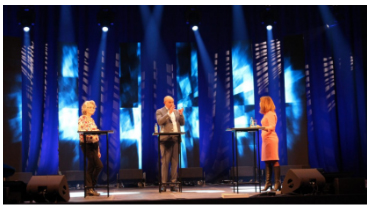 The Netherlands is known around the world for the quality and sophistication of its foresight work and the Ministry of Infrastructure and Water management (Rijkswaterstaat) is known for its excellence in water management and engineering. Recently, The Netherlands has made considerable effort for creating and developing a circular economy. Expedition 2050 is a process of creative exploration that brings together a diversity of perspectives and expertise to shape an ambitious transformation agenda. PGI was grateful for the opportunity to participate at the Kraaiennestdag. Ms. Bourgon delivered a keynote address about the future of governance.
The Netherlands is known around the world for the quality and sophistication of its foresight work and the Ministry of Infrastructure and Water management (Rijkswaterstaat) is known for its excellence in water management and engineering. Recently, The Netherlands has made considerable effort for creating and developing a circular economy. Expedition 2050 is a process of creative exploration that brings together a diversity of perspectives and expertise to shape an ambitious transformation agenda. PGI was grateful for the opportunity to participate at the Kraaiennestdag. Ms. Bourgon delivered a keynote address about the future of governance.
Michèle Blom, Director General at Rijkswaterstaat, reflected on the challenges facing governments in the 21st century:
“The challenges ahead are large and uncertain. The Netherlands is faced with rising sea levels and increasing soil subsidence, extreme weather and severe drought. We barely understand this complex climate system. And how will population growth develop? The scenarios vary from an unchanged number to substantial growth. And then there is the technological development!. The role of IT is increasing. But will we be able to handle (social) media better in 2050 than now? And who will determine the IT standards in the future?”
Michèle Blom, 2020 (Full text in Dutch can be found here)
The following video is an excerpt from of Ms. Bourgon’s keynote speech, where she discussed the New Synthesis of Public Administration as a tool to create a pathway to a better future and face the challenges ahead:
The findings of the Expedition RWS2050 can be reviewed here. A summary of Kraaiennestdag is also available here (in Dutch).
Canada

The CSPS Virtual Coffee Series
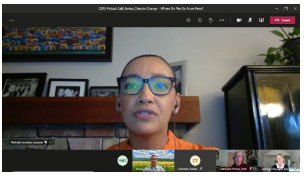 The Canada School of Public Service is at the forefront of whole-of-government approaches to learning. It recently launched “The CSPS Virtual Coffee Series”. The series reach out to public sector leaders across Canada. Its purpose is to expose them to important public policy challenges. Drawing from PGI recent publications, one of the sessions (September 2020) explored “What does it mean to set a society on a sustainable human trajectory”. The sessions brought together PGI, Treasury Board Secretariat and McGill University Department of Biology. A recording of the session is available in French on CSPS website.
The Canada School of Public Service is at the forefront of whole-of-government approaches to learning. It recently launched “The CSPS Virtual Coffee Series”. The series reach out to public sector leaders across Canada. Its purpose is to expose them to important public policy challenges. Drawing from PGI recent publications, one of the sessions (September 2020) explored “What does it mean to set a society on a sustainable human trajectory”. The sessions brought together PGI, Treasury Board Secretariat and McGill University Department of Biology. A recording of the session is available in French on CSPS website.
Denmark

National Conference on the Impact of the Coronavirus Crisis
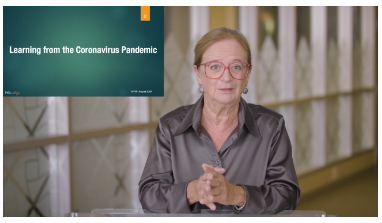 The Danish Association of Local Government Executives made learning from the Covid-19 pandemic the focus of its national conference (August 2020). The Honourable J. Bourgon, President of PGI, delivered the opening address. She discussed how NS helps public sector invent solution to complex, high impact events. Denmark is shaping an ambitious transformation agenda post-COVID-19.
The Danish Association of Local Government Executives made learning from the Covid-19 pandemic the focus of its national conference (August 2020). The Honourable J. Bourgon, President of PGI, delivered the opening address. She discussed how NS helps public sector invent solution to complex, high impact events. Denmark is shaping an ambitious transformation agenda post-COVID-19.
The following video is a fragment of Ms Bourgon’s keynote speech, where she talks about the key learnings from the Coronavirus Pandemic from an NS perspective:
Singapore

Singapore Roundtables
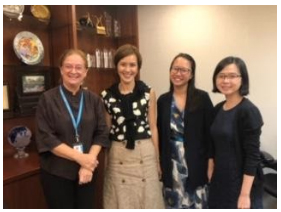 The Singapore Civil Service College (SCSC) is a long-time partner of PGI and a participant in the New Synthesis Initiative. In January 2020, SCSC organized three roundtables to discuss PGI most recent research work. The paper entitled Why is it so difficult to make progress on climate change was the basis for discussion with the Ministry of Environment and Water Management, the National Climate Change Secretariat, the Global Center for Technology, Innovation and Sustainable Development, as well as the Prime Minister’s Office Strategy group. The COVID crisis offers unprecedented opportunities to accelerate the transformation needed to address climate change.
The Singapore Civil Service College (SCSC) is a long-time partner of PGI and a participant in the New Synthesis Initiative. In January 2020, SCSC organized three roundtables to discuss PGI most recent research work. The paper entitled Why is it so difficult to make progress on climate change was the basis for discussion with the Ministry of Environment and Water Management, the National Climate Change Secretariat, the Global Center for Technology, Innovation and Sustainable Development, as well as the Prime Minister’s Office Strategy group. The COVID crisis offers unprecedented opportunities to accelerate the transformation needed to address climate change.
Other roundtables discussed themes related to citizenship in the digital age and the future of Public Service.
Canada
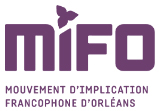
Mouvement d’implication Francophone d’Orléans Conference
PGI Vice-President Michel Bilodeau gave a keynote address at a conference organized by the Mouvement d’implication Francophone d’Orléans, Ontario, Canada. He discussed the emerging trends and consequences of an aging population for the health care and long term care systems. He explored potential avenues for aging at home, the concept of urban village, retirement and pensions, and the organization of labor.
Bahrain

BIPA Roundtable Initiative
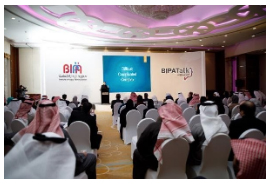 PGI President Jocelyne Bourgon was in Bahrain at the invitation of the Bahrain Institute of Public Administration (BIPA). The agenda included the BIPA Roundtable Initiative and the BIPA Talk initiative. The BIPA Roundtable involved high-level officials from public and private sectors to discuss avenues for citizen-centric services. Ms Bourgon discussed the importance of systems thinking to prepare the public sector for the challenges of serving in the 21st century.
PGI President Jocelyne Bourgon was in Bahrain at the invitation of the Bahrain Institute of Public Administration (BIPA). The agenda included the BIPA Roundtable Initiative and the BIPA Talk initiative. The BIPA Roundtable involved high-level officials from public and private sectors to discuss avenues for citizen-centric services. Ms Bourgon discussed the importance of systems thinking to prepare the public sector for the challenges of serving in the 21st century.
Norway

Future of Municipalities National Conference
Norway has a long experience of collaborative and innovative approaches involving municipal authorities, citizens, civil society, and private partners. A recent working paper on “Municipalities 3.0 “ reflects a commitment to collective problem solving to address complex issues ranging from children at risk or elder care to climate change. The Conference “Future of Municipalities” offered an opportunity to introduce public sector leaders to the NS Initiative. The Arendal Municipality was the main organizer. Ms. Bourgon’s keynote address explored how the future of municipalities could be a platform that encourages co-creation and co-production between national partners, public actors, voluntary organizations and private companies.
More information about the future of municipalities national conference is available here.
Denmark
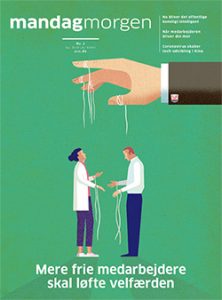 The Welfare Innovation Day 2020
The Welfare Innovation Day 2020
The Danish media group Altinget & Thinktank Monday Morning hosted ‘The Welfare Innovation Day 2020’. It brought together 1000 leaders and practitioners from the public, private and civil sectors. The objective was to modernize the social state. Ms. Bourgon argued that nothing is more important to the ongoing success of democratic governance than to reconcile in new ways the economic, social, and environmental spheres of life in society. The economic sphere does not operate separately from society. The environmental sphere has been insufficiently integrated in policy decision making. She signaled that countries that recognize the importance of the State, have a tradition of collaboration across sectors and a commitment to the active engagement of citizens and communities, are the ones best positioned to modernize the governance of modern democratic societies.
Comments from Torbenk. Andersen and Jens Reiermann, Editors Monday Morning:
“Managers and employees of the country’s municipalities will have greater freedom to create new, sustainable welfare solutions in collaboration with citizens, organizations and companies…
…Many of the country’s municipalities have taken matters into their own hands and are in the process of rolling out the subsidy reform that the government has promised voters. The municipalities are experimenting with completely new ways of leading and developing welfare. Some are inspired by the New Synthesis mindset, which Canadian researcher Jocelyne Bourgon has spearheaded … Municipalities and regions are under pressure to deliver better welfare in a time with fewer resources, increasing demands and greater expectations from citizens and civil society. The new paradigm can lead to better and more innovative solutions, greater trust and a more sustainable welfare society.”
More information about the 2020 The Welfare Innovation Day can be found here.
New York City

The New Synthesis Initiative: Serving in the 21st Century – Study Group in New York City
The Danish Public Leadership Education Program sponsored by the University College Copenhagen Leadership Department organizes an annual event to expose public sector leaders to a diversity of ideas and trends. The purpose is to ensure that the Danish public sector is and remains at the leading edge. The NS framework and the NS exploratory cycle are well known to the Danish public service. A working session in New York City (January 2020) provided an opportunity for a deeper conversation about NS concepts with public sector leaders from Municipalities, the City of Copenhagen, School districts, Job Centers, Directors of Finance, etc.






